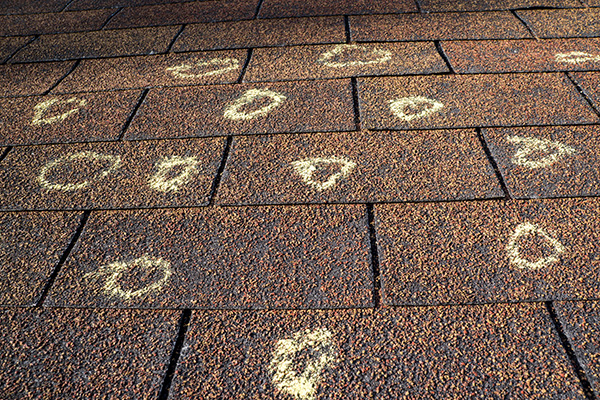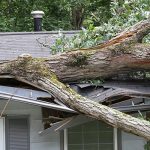When most people purchase homeowners’ insurance, they are not contemplating losses or damage caused by hail — particularly if the home is located in Florida. Surprisingly, however, hail damage is a major cause of claims filed with homeowners’ insurance companies. Does your homeowners’ insurance cover hail damage?
How Common Is Hail Damage in Florida?
Nationwide, insurance companies paid out between $8 billion to $14 billion per year from 2000 to 2019 for hail-related claims, according to the Insurance Information Institute. Hailstorms represent approximately 70 percent of the average annual property losses from severe convective storms in the United States, according to the National Center for Atmospheric Research. In 2019 alone there were 5,396 major hailstorms, according to the NOAA’s Severe Storms database.
Of course, if you live in Florida you might not be overly concerned about hail damage; however, even the Sunshine State is not safe from hailstorms. In May 2020, for example, severe storms dropped hail as large as three inches in diameter across several areas of the state. Moreover, as severe weather events increase across the world, hail is becoming more frequent in Florida. The largest hail ever recorded in Florida was 4.5 inches in diameter and fell on three different occasions in the recent past — in Polk County in March 1996, Bradford County in March 2003, and in Marion County on May 13, 2007.
What Is Hail Damage?
Hail is formed when drops of water freeze together in the cold upper regions of thunderstorm clouds. These chunks of ice are called hailstones and often band together to form larger chunks of hail by the time they reach the ground. Although we refer to hail in terms of its diameter, most hail is not a smooth round ball. Instead, hail tends to have sharp, even jagged, edges that can cause serious damage when they collide with objects on the ground.
Vehicles and homes suffer the brunt of the damage in a hailstorm. Your home may suffer damage to the roof, gutters, siding, and windows among other things. Hail can also dent garage or storm doors as well as wreak havoc with porches and outdoor pool areas.
Is Hail Damage Covered by Florida Homeowner’s Insurance?
When you purchased your homeowners’ insurance policy you likely did so under the impression that the policy could cover all losses caused by factors out of your control, including hailstorms. In fact, most homeowners’ insurance policies do cover damage caused by natural disasters; however, in states where severe storms are common, such as Florida, companies often exclude losses caused by hail. Even if they do not exclude coverage, the policy may apply a higher deductible to losses caused by a hail producing storm.
Why Your Hail Damage Claim Might Not Be Paid in Full
If your home or property suffered damage because of a hailstorm, you likely expect your homeowners’ insurance coverage to reimburse you for your loss. Unfortunately, that does not always happen as anticipated. Insurance companies are in the business of making money, meaning they often deny claims outright or offer to pay considerably less than the actual costs associated with the loss.
They often do this by pointing to the “fine print” in a policy that excludes wind/hail damage or “cosmetic” damage. Another common cause of a disputed hail damage claim is the disparity between what the insurance company’s adjuster values the loss at and what it will truly cost to repair/replace the damaged property.
How Can an Experienced Insurance Claim Attorney Help?
You pay your homeowners’ insurance premiums with the expectation that the insurance company will cover a loss if you experience one. To ensure that your claim for hail damage is paid in a timely manner and in full it is in your best interest to consult with an experienced insurance claim attorney prior to filing a claim.
A Florida Hail Damage Attorney can review your policy and explain your coverage before you make a claim, thereby increasing the likelihood of the claim being paid in full. If you have already submitted a claim, and it has been denied, delayed, or underpaid, an experienced Florida insurance claim attorney will be prepared to negotiate and litigate if necessary, on your behalf to ensure that your losses are covered in full.




